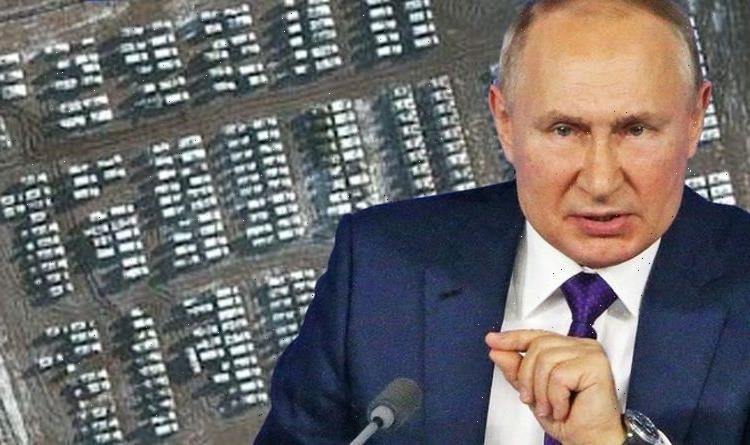Putin given 'vast power' over European economies says expert
We use your sign-up to provide content in ways you’ve consented to and to improve our understanding of you. This may include adverts from us and 3rd parties based on our understanding. You can unsubscribe at any time. More info
Business Secretary Kwasi Kwarteng is now reportedly drafting up a rescue package after a predicted jump in the energy price cap from £700 to £2,000 as the maximum tariff energy suppliers can charge from April, could send gas and electric bills soaring. Experts have warned that this rise, which is 56 percent above the current cap, may push a further 1.5 million households into fuel poverty if the Government does not act fast.
This comes after the Russian President slashed gas volumes travelling into Europe, just after it looked like pressure on supplies and prices was starting to ease.
EU supplies dropped after Gazprom, Russia’s state-owned gas conglomerate, switched gas flow to the east from the Yamal-Europe pipeline earlier this week.
UK prices skyrocketed to record highs as a result, reaching 470p per therm Tuesday, beating October’s 407p record.
Russia had already sent prices rocketing in October, and was accused of deliberately withholding gas volumes to Europe in the hope to speed up the certification of Nord Stream 2, another pipeline that would bring extra supplies to the EU.


While Mr Putin’s move directly hits the bloc’s gas supplies, the UK’s exposure to international markets means that Britain is affected by Russian gas squeezes too, impacting the cost for the consumer as a result.
But Mr Kwarteng could rescue British households from soaring bills, with plans like extending fuel grants, and an axe to the five percent VAT tax to household energy bills originally slapped on Britain when it was an EU member.
The tax is predicted to gift the Treasury an extra £1.4billion a year if bills do rise as predicted by analysts.
The Government has been warned that the worst-off households will be hit hard by rising prices and has been urged to intervene.
Adam Scorer, chief executive of National Energy Action, the fuel poverty charity, said: “Government needs to provide immediate financial assistance to those on the lowest incomes, require a below market-rate, discounted price in the medium term and insulate them from crippling bills for good through a major, targeted energy efficiency programme for the fuel poor.

“At the very least the Treasury should use its own tax windfall created by the energy crisis to take the sting out of these catastrophic price rises for those least able to weather the gathering storm.”
But while prices have been sent soaring by Russia’s moves, so far households have been somewhat protected by the existing price cap on bills.
Although the October reset did see the cap rise £139 to £1,277.
And the UK energy sector has also been devastated by Mr Putin’s tight grip on the market, with 26 major suppliers going bust.
Despite this, the Business Secretary has repeatedly ruled out direct financial support to energy companies.
But he is drafting up protective measures, which involve moving some policy costs from bills onto general taxation.
One option is a privately financed loan to help retailers with wholesale costs, which would mean the impact on energy bills would be less severe.
The loan would not be government-funded but might need ministers to set up the framework.
DON’T MISS
NASA signs up British priest to prepare for alien life reveal [REVEAL]
Solar storm warning as NASA predicts ‘Earth impact’ before Christmas [REPORT]
Scientists pinpoint exactly when the Sun will explode [INSIGHT]


EDF and National Energy Action have both demanded for a VAT cut or redistribution.
Alex Belsham-Harris, principal policy manager at energy watchdog Citizens Advice said: “Right now the energy price cap is providing households with much-needed protection from rocketing energy bills.”
The Government has argued that the price cap itself is a means of protecting customers from global gas price rises.
A government spokesman said this week: “The Energy Price Cap is insulating millions of customers from record increases in global gas prices and will remain in place, and at the same rate, this winter.
“We continue to support those most in need through our £500million Household Support Fund, the Warm Home Discount and Winter Fuel Payments.”
Source: Read Full Article

